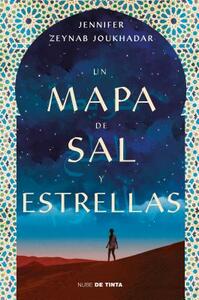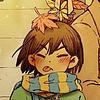You need to sign in or sign up before continuing.
Take a photo of a barcode or cover
Nach dem Tod des Vaters kehrte ihre Familie in die alte Heimat Syrien zurück. In New York geboren, ist dieses Land Nour fremd und es fällt ihr schwer, die Sprache ihrer Vorfahren zu verstehen. Während sie über den Verlust des Vaters trauert und Trost in der Welt seiner Geschichten sucht, fühlt sie sich missverstanden und allein. Als dann ihr Haus bei einem Anschlag völlig zerstört wird, steht die Familie abermals vor einem Abgrund. Ohne wirkliches Ziel reisen sie durch vom Krieg gezeichnete Städte und wieder einmal sind es die Geschichten, in denen Nour Zuflucht findet und die sie darin ermutigen, über sich selbst hinauszuwachsen.
Neben der berührenden Geschichte der kleinen Nour und den Abenteuern ihres Vorbilds Rawiya, beinhaltet „Die Karte der zerbrochenen Träume“ eine Chronologische Übersicht des Syrienkriegs und gibt dem Leser reichlich Einblicke in fremde Kulturen, sowohl zu heutiger, als auch zu vergangenen Zeiten.
“The Map of Salt and Stars” by Zeyn Joukhadar was a beautiful coming of age story.
Readers learn early on that the main character, Nour, recently lost her father to cancer. Her mother decided to move Nour and her older sisters from the USA to Syria to be closer to their roots and family. She aims to remember her father’s favourite story, often retelling the one about a 12th century girl named Rawiya, to the fig tree outside her new home. Nour has synesthesia, which is a unique ability that alters perception. In her case, letters and numbers evoke colours. This was an interesting tool, which apparently the author himself also relates to. This made the story even more magical and special. Inevitably, civil war causes havoc, loss, and confusion forcing Nour and her family to search for safety.
The retelling of Rawiya’s story brings readers to the second timeline about the young girl in search of a famous mapmaker, al-Idrisi, to become his apprentice. Yet, in order for her to travel safely alone, Rawiya must go by the name Rami and hide her true identity by disguising herself as a boy. This adventurous storyline is filled with hopes of finding fortune to support her mother, to learn about mapmaking, and to discover her own talents and gifts - even while fighting mythical beasts!
The duel timelines might have been separated by 800 years, but the connections between the two main characters were beautifully interlaced. I also enjoyed the poignant poetry interspersed between parts of the story. Joukhadar’s heart-wrenching portrait of the Syrian refugee crisis and the powerful displays of resilience was awe inspiring.
Working and teaching alongside many Syrian teachers and students over the years already gave me a slight glimpse of the complicated nature of this difficulty. Of course, many will never grasp the hardship of what it means to be displaced, to become part of a group hoping to return home wherever that may be someday. All anyone can do is be more empathetic, read more stories told by #ownvoice writers and encourage others to as well.
If you haven’t yet, you may want to start with a novel like this one.
(This review can also be found on my blog!)
“The land where your parents were born will always be in you. Words survive. Borders are nothing to words and blood.”
🌙 🧕—Muslim & Arab Reading Month #1 (this book features Arabs as well as hijabi women)[5/5]
Trigger warning: attempted rape, violence, death.
Did I finally, finally find the book that seemed to speak to me, rather than just narrate a story?
Why yes. Yes I did, and the proof is right there on the dedication page:
“For the Syrian people,
both in Syria and in diaspora,
and for all refugees”
The Map of Salt and Stars is about a 12-year-old girl, Nour, who has to move from New York back to Homs, Syria, with her family after the death of her father. Nour has a difficult time adjusting, especially considering that her two elder sisters know Arabic much better than she does. They have memories of Syria, while she doesn’t. All she has to hold on to is the stories of her late father, more specifically, the story of Rawiya.“Everybody knows the story of Rawiya. They just don’t know they know it.”
Rawiya is a skilled, ambitious 12th century girl. In search of fame and glory, she decides to leave home, dressed as a boy, to become the apprentice of a map-maker, Al-Idrisi. She also journeys with his other apprentice, Bakr.First of all, let me just say that if I make no sense in this review, that’s because this book has stolen all the words from me. The poignancy and truth it carries is so powerful that I don’t even know how to describe it.
I love that this story is told from the point of view of a 12-year-old girl. A 12-year-old girl who has to worry about things like food and hygiene while she’s on the run for her life. She’s supposed to be going to school and making friends and copying homework off her classmates—not getting shot at and shelled.
“I would’ve been starting seventh grade soon. I was looking forward to science class, to filling in maps with tectonic plates and making my own battery out of a potato. Do they make batteries out of potatoes in Jordan? Will I have to sell tissues instead?”
🗺️ Nour“People make such beautiful things, I think, even though they destroy so much.”
Nour’s description of the places and events was refreshing and vivid; she’s one of those characters who expresses herself with colours. She remembers people’s voices and gives them their very own colours. This is called synaesthesia. She’s also constantly terrified of forgetting her father’s, but her friends and family reassure her that the memories she has with him can never be buried. With all the horrible things and harsh realities that Nour is exposed to on this journey, her mindset slowly starts to shift. She starts worrying more, wondering more about her uncertain future, thinking about her roots and about why someone like her has been targeted when she hasn’t done anything bad at all.“‘Some people get angry. They think we are dangerous. We scare them.’
‘I didn’t want to scare them,’ I say. I bury my face in Huda’s hijab. ‘I just wanted to come home.’”
She learns that people will always be sceptical of refugees, and that they often don’t care about their age or their physical or mental health. All they can see is the face the media shows them—the face of a thief or a killer, when in reality, it’s simply someone who’s lost their home and wants to find their way back. They didn’t have a choice.I think the release of this book came at a perfect timing. With the refugee crisis and the numerous misconceptions going on right now, it’s important that more books start talking about why we need to help instead of push away.
Nour also learns that, when wars are involved, innocent people are affected. People who never even wanted any violence, who were living peacefully up until everything they had was ripped away from them.
“‘I don’t understand why we were shelled.’ Mama speaks soft like she thinks we’re asleep, like she’s afraid to wake us.
Abu Sayeed says nothing at first. The car’s tires hum. The engine clacks and complains.
‘We may never understand,’ he replies, just as quiet. ‘In times like these, it’s the small people who suffer.’”
This part just hit close to home so much—not because I’ve been through this, but simply because that’s precisely what’s happening. Look at all these people fleeing into foreign countries, hoping for safety, but getting discriminated against and rejected instead. They can’t go back and they can’t go forward. How horrible must it be?🗺️ Rawiya
“‘I am a woman and a warrior,’ Rawiya said, her blade cutting into his club. ‘If you think I can’t be both, you’ve been lied to.’”
What can I say about Rawiya that isn’t already obvious from the quote above? She is a queen among queens. She’s skilled with the sling, quick-witted, and adorable as well. She battles soldiers, armies, and mythological creatures, even, and she doesn’t complain once. She loses and she wins and she loves and she hates. She’s a very well-built character and I’m so happy we finally have a strong Arab lead in literature.Rawiya also has a very sweet romance sub-plot and it’s just the purest thing ever!! Lately I’ve been reading a bunch of romances that are more about the feelings between the characters and how these emotions build up, rather than sudden, spontaneous to start kissing or something. It was simple, it was hella cute, and it was easy to follow. Now if only we could have more of those, please.
Why I especially loved this historically fictitious bit of the story is because it shows what the Arab world was like before all the wars and the fighting. It’s rich in Arab and African history and culture: Syria, Jordan, Egypt, Libya, Morocco, Algeria, Ceuta. As a person who’s obsessed with the world, I had so much fun reading this.
Speaking of what the Arab world used to be, Nour also continues to learn more about how Syria was from her sisters, Huda and Zahra, who have spent more time there than she has.
“‘You should have seen Syria—how it used to be. We used to get fresh green beans and make loubieh bi zeit and rice. We would take out our plates and some folding chairs into the driveway under the chestnut tree. Sitto used to come over, Mama’s clients, everybody. That was Syria to me. The green beans, the sagging folding chairs, the oil on people’s hands.’
I bury my face in my elbow. ‘Now it’s gone.’
‘But not from us.’ Zahra rubs her thumb across the back of her hand like she’s spreading an invisible oil stain. ‘The Syria I knew is in me somewhere. And I guess it’s in you too, in its own way.’”
It’s bittersweet to see the whole family, including family friends—Abu Sayeed—and other strangers they come across on the way—Um Yusuf, Yusuf, Sitt Shadid—join hands to survive. Nour meets many people on her journey, some not even allowed to cross borders because of document complications, like a hakawati; a man whose job is to tell stories. Even his brief appearance impacts her for life.Do I recommend this? Definitely. Do I think this book has enough hype? Nope. I’m a bit shocked why this isn’t as popular as other books, because this is a novel we so desperately need right now. Everyone should read this; it really gives us all some questions and scenarios to think about.
-------------------------------------------
My "just-finished-the-book" ramble:
LOOK MA, I'M IN A NOVEL! (okay, maybe not really, but the rep is excellent.)
2018 has been blessed with the release of this book & I could not be happier. This book had me in tears & I am not ashamed to admit that because it means SO MUCH to me adjbsadasjb
leave a message at the tone because I am currently unavailable for the next 2673 years.








